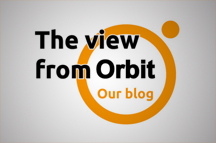 Now that the dust has begun to settle after the Prime Minister’s surprise call of a snap election for 8th June, weary Scots are set to trudge to the polling booth for the seventh time in three years.
Now that the dust has begun to settle after the Prime Minister’s surprise call of a snap election for 8th June, weary Scots are set to trudge to the polling booth for the seventh time in three years.
Prior to this is the small matter of the local elections on 4th May, a test of the Tory strategy to use these elections to send a message to Nicola Sturgeon of “no to a second referendum”. Indeed, as I write this, the Scottish Conservatives are to put opposition to a second independence referendum at the heart of their local government election campaign.
This is a message that will continue into the General Election. While in the rest of the UK Brexit will be very much to the fore, in Scotland, which voted to remain in the EU, it will be the independence issue that will continue to dominate. Indeed, Prime Minister May has again reaffirmed this view, writing in The Scotsman that a vote for the Scottish Conservatives would send a “clear message” of opposition to the SNP’s “divisive” plans for the second independence vote.
For the SNP, First Minister Nicola Sturgeon has highlighted that the General Election will serve to “reinforce” its mandate for a vote on independence. She will also try and frame the election as being between a right-wing Tory party, which wants a hard Brexit, and her message of “elect us to stand up for Scotland”.
If the SNP do as well as predicted, they will claim yet another ‘cast-iron’ mandate to hold another independence referendum. This is why Nicola Sturgeon says that the Prime Minister has made a miscalculation.
Opposition parties will urge Scots to use the election to say no to a further plebiscite.
The challenge facing the SNP is that they did so well in the 2015 election, with 56 out of 59 MPs and falling just shy of half the vote (49.97%), that any fall will be seen by the unionist parties as a victory, a call for no independence referendum.
In the 2015 election Labour trailed in second on 24% (losing 40 of their 41 MPs) while the Conservatives secured 14% and the Liberal Democrats 8%.
With three parties chasing the “unionist vote” and consequently splitting that vote, the SNP clearly have a huge advantage.
Current opinion polls provide little consolation to these parties. The most recent poll (Panelbase/Sunday Times March 2017) had the SNP on 47% (-3% from General Election 2015), the Conservatives, 28% (+13%), Labour continuing its decline on 14% (-10 %) with the Liberal Democrats barely visible on 4% (-4%).
 On this basis the Scottish Conservatives, with only one MP in Scotland, are likely to do well, leapfrogging Labour to second place, as they did in the Holyrood elections. They will be targeting constituency seats won at that election, so expect West Aberdeenshire and Kincardine, Berwickshire, Roxburgh and Selkirk and Dumfries and Galloway to be in the Tory firing line.
On this basis the Scottish Conservatives, with only one MP in Scotland, are likely to do well, leapfrogging Labour to second place, as they did in the Holyrood elections. They will be targeting constituency seats won at that election, so expect West Aberdeenshire and Kincardine, Berwickshire, Roxburgh and Selkirk and Dumfries and Galloway to be in the Tory firing line.
Labour will be content to try and hold onto their sole MP, Ian Murray in Edinburgh South, and try and stem the continuing rot. There may also be a sly Labour eye cast to East Lothian, held at Holyrood by former Scottish Labour leader, Iain Gray MSP.
The Liberal Democrats could see an increase in their vote and will target seats they took in the Holyrood elections, such as Edinburgh West, where former SNP MP, Michelle Thomson, now stands as an independent, and North East Fife, held by Liberal Democrat leader, Willie Rennie MSP.
Theresa May has rolled the dice, pitching the General Election in Scotland as a de facto vote on Scottish independence. Expect both the SNP and the Tories to claim that they have rolled double sixes on 9th June.












